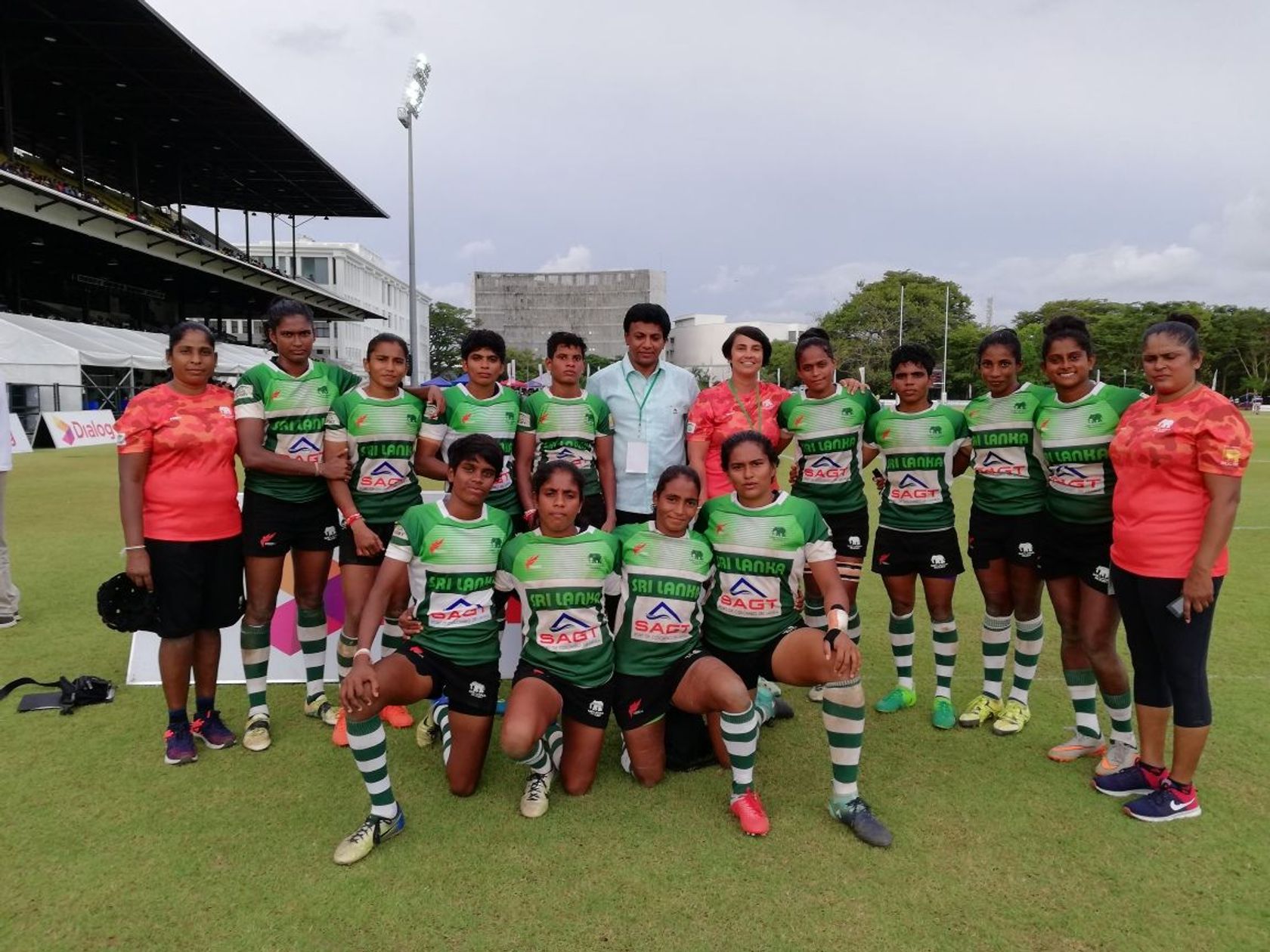Rasika Thilangani Warakagoda had never played rugby when she was offered the role of team manager with the Sri Lanka women’s sevens team in 2010.
Warakagoda had been a keen sportswoman in her youth, and played netball, table tennis and cricket, while competing at athletics, but rugby had not been an option.
But, with the national sevens team drawn from members of the country’s Air Force, Army and Navy, it was felt that a member of the forces would best understand the players’ needs.
Having served in the Sri Lanka Air Force since 1994, Warakagoda was thought to be a good fit for the role, and so it has proved.
“They [decided] that an Air Force lady could control them easily, better than a civilian lady,” she told World Rugby.
Warakagoda’s first assignment with the team was at a tournament in Pune, India, where she dedicated herself to keeping the players in a “happy mood”.
#AsiaRugbyLive #episode4 Continues its focus on #WomenInRugby talking to 4 women leaders of Rugby In Asia
— Asia Rugby (@asiarugby) May 16, 2020
Doris Chow🇭🇰 @HongKongRugby
Karina Soerjanatamiharja🇮🇩
Viengsamai Souksavanh 🇱🇦
Rasika Warakagoda 🇱🇰
4 recipients awarded @worldRugby Executive Leadership Scholarship pic.twitter.com/x7Ww89gyzK
Despite her lack of rugby experience, she soon became a mother figure for members of the squad. “If they have any problems, they always call me and ask for help,” Warakagoda added.
Supporting the women’s game
Warakagoda stepped away from the national team in 2014, when she left the Air Force following two decades of service. However, she remained involved with the game as she became a member of the Sri Lanka Rugby (SLR) Council.
She has since continued to advocate for the women’s game in Sri Lanka, starting the first non-forces women’s club and helping to grow participation numbers across the country.
Sri Lanka was one of 22 Asian countries that took part in the Impact Beyond programme ahead of Rugby World Cup 2019, which helped inspire 2.25 million new participants across the continent.
According to Warakagoda, more than 1,500 schoolgirls were playing rugby prior to the COVID-19 pandemic. She has also been able to use her contacts to help women involved with SLR programmes find jobs within the forces once they have left school.
“Always I try to give my fullest support to develop women's rugby,” Warakagoda said.
“I have developed provincial-wide women's rugby programmes. We nominate the coaches and provide all welfare matters to them. We provide the women’s rugby schools with sports items, balls and other things, and training programmes.”
She added: “School leavers, I try to get them job opportunities from the Army, Navy, Air Force and I join them to that process and they play for those forces, and they can earn and they have a job.
“As a council member I have so many contacts [so] I have an opportunity to find a job for that lady.”
‘It’s totally changed now’
It was due to Warakagoda’s desire to become a better leader, and take on more responsibility that she was awarded with a World Rugby Women’s Executive Leadership Scholarship earlier this year.
The pandemic has ensured that she has been unable to complete the leadership training that she had hoped to, but being part of the scholarship has enabled her to grow her network of contacts around Asia, and further afield.
Warakagoda hopes to put what she has learnt through the programme into practice in Sri Lanka with the growing number of female coaches and referees.
COVID-19 has also impacted on the progress the women’s game had made in the country, with contact sport banned in Sri Lanka for much of 2020 due to the pandemic.
SLR and Warakagoda have been able to roll out online training courses for players, while a coach has been assigned to each of the country’s provinces. However, it has been hard to roll out those programmes in certain areas where children do not have access to computers.
Warakagoda, whose own son now plays rugby, remains hopeful though that the women’s game can continue to grow in Sri Lanka.
“When I was in childhood, women's rugby was not in Sri Lanka, it was not famous,” she said.
“[For] more than 10 years it's totally changed now. Women and ladies, also the schoolgirls, also like to play rugby and their parents also like to join their children to play rugby.”







